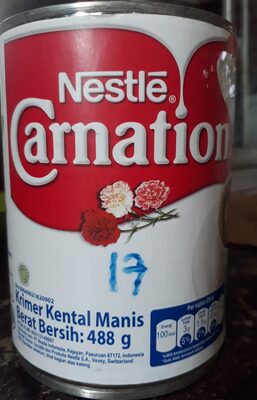
Barcode: 8992696426528
Carnation
HALAL
📝 Reason: All ingredients listed are plant-based or naturally occurring substances with no Haram or Doubtful components, making the product Halal compliant.
📄 Certificates: None
Ingredients:
Details
Is Carnation Halal? Let’s Explore Its Ingredients!
If you’re curious about the Halal status of Carnation, you’re in the right place! This beloved product has been quite popular, and understanding its ingredients can help you make informed choices. Based on our thorough examination, it’s confirmed that Carnation is indeed Halal. Let’s dive into the components to explain why.
Understanding Halal Compliance
The Halal status of a product is determined by the absence of Haram (forbidden) ingredients and the compliance with Islamic dietary laws. In this case, all the ingredients in Carnation are either plant-based or naturally occurring, confirming its Halal status.
Ingredients Breakdown
Carnation consists of the following ingredients: gula, air, pandan susu, minyak nabati, and pengental nabati. We will delve into each component to confirm their Halal status:
1. Gula (Sugar)
Gula, or sugar, is commonly used in various food products for its sweetness. From our analysis, sugar is generally considered Halal as it is derived from sugarcane or sugar beets, both of which are plant sources. No additional chemicals or processing methods affect its Halal status.
2. Air (Water)
Water is fundamental and universally recognized as Halal. It serves as a base for many beverages and food products, including Carnation. There are no concerns regarding its sources impacting its Halal compliance.
3. Pandan Susu (Pandan and Milk)
Pandan susu is comprised of pandan leaves and milk, both considered Halal ingredients. Pandan is a plant-based flavoring agent that contributes a charming aroma and taste to the product. Milk, when sourced from Halal-certified animals and processed in a Halal manner, is also Halal. Therefore, pandan susu contributes positively to the overall Halal status of Carnation.
4. Minyak Nabati (Vegetable Oil)
Minyak nabati, or vegetable oil, is typically derived from plant sources such as soybeans, corn, or canola, all of which are Halal. Provided it’s free from any animal-derived processing agents, vegetable oil is a compliant ingredient.
5. Pengental Nabati (Vegetable Thickener)
Lastly, pengental nabati refers to vegetable-based thickeners, which are used to improve the texture of products. These thickeners are generally derived from natural plant sources and comply with Halal standards.
Conclusion: A Halal Choice
In summary, Carnation is a Halal product containing ingredients that are all sound in their Halal compliance. With no Haram or doubtful components, it stands as a delightful option for those seeking Halal-certified alternatives. While there are no specific Halal certificates available for Carnation, the individual components validate its status.
As a consumer, it is essential to understand what goes into the products we consume. For anyone concerned about dietary restrictions, knowing that Carnation is Halal makes it an excellent addition to your pantry.
So the next time you enjoy a serving of Carnation, you can relish not just the flavor, but also the peace of mind that comes from consuming a completely Halal product!
